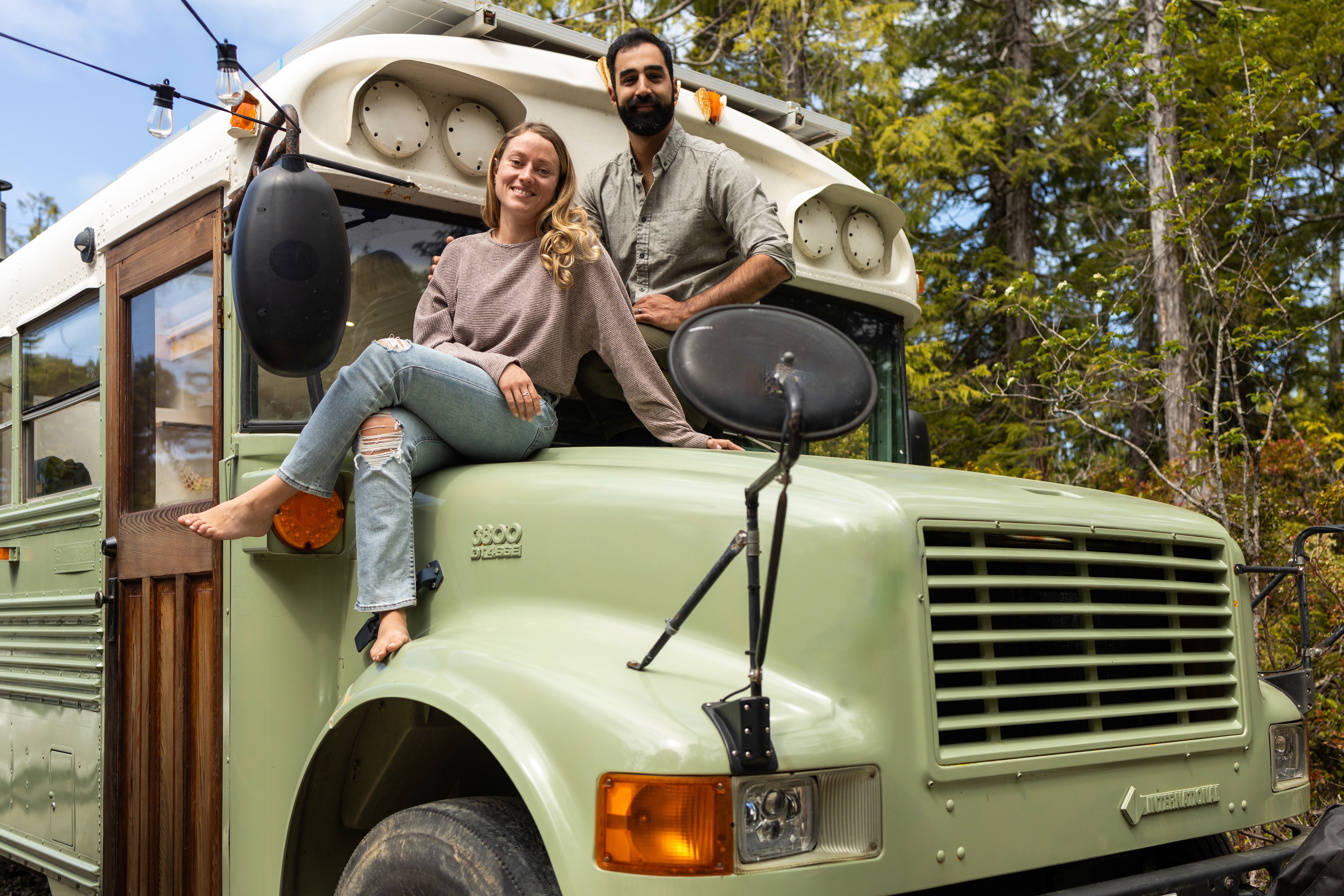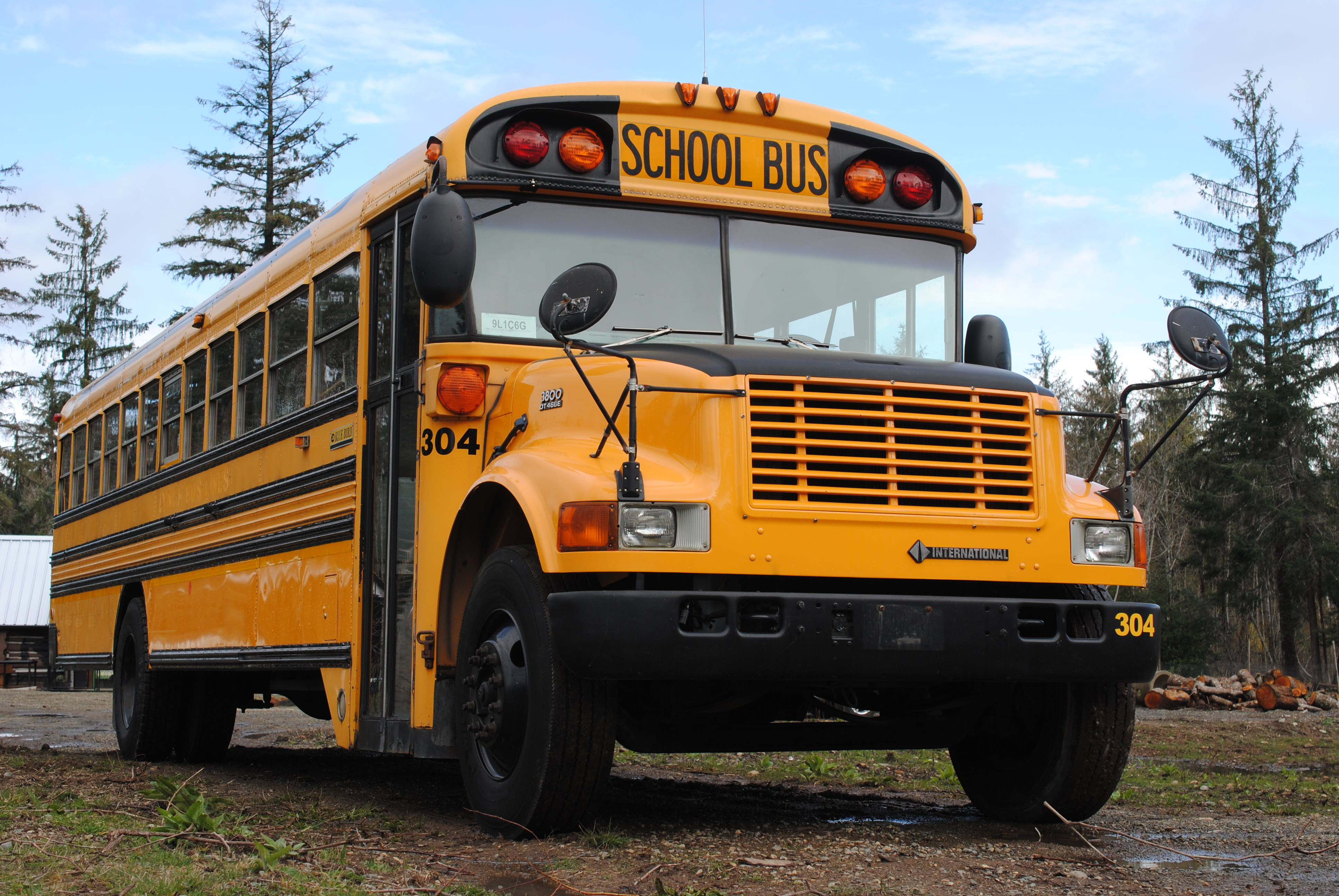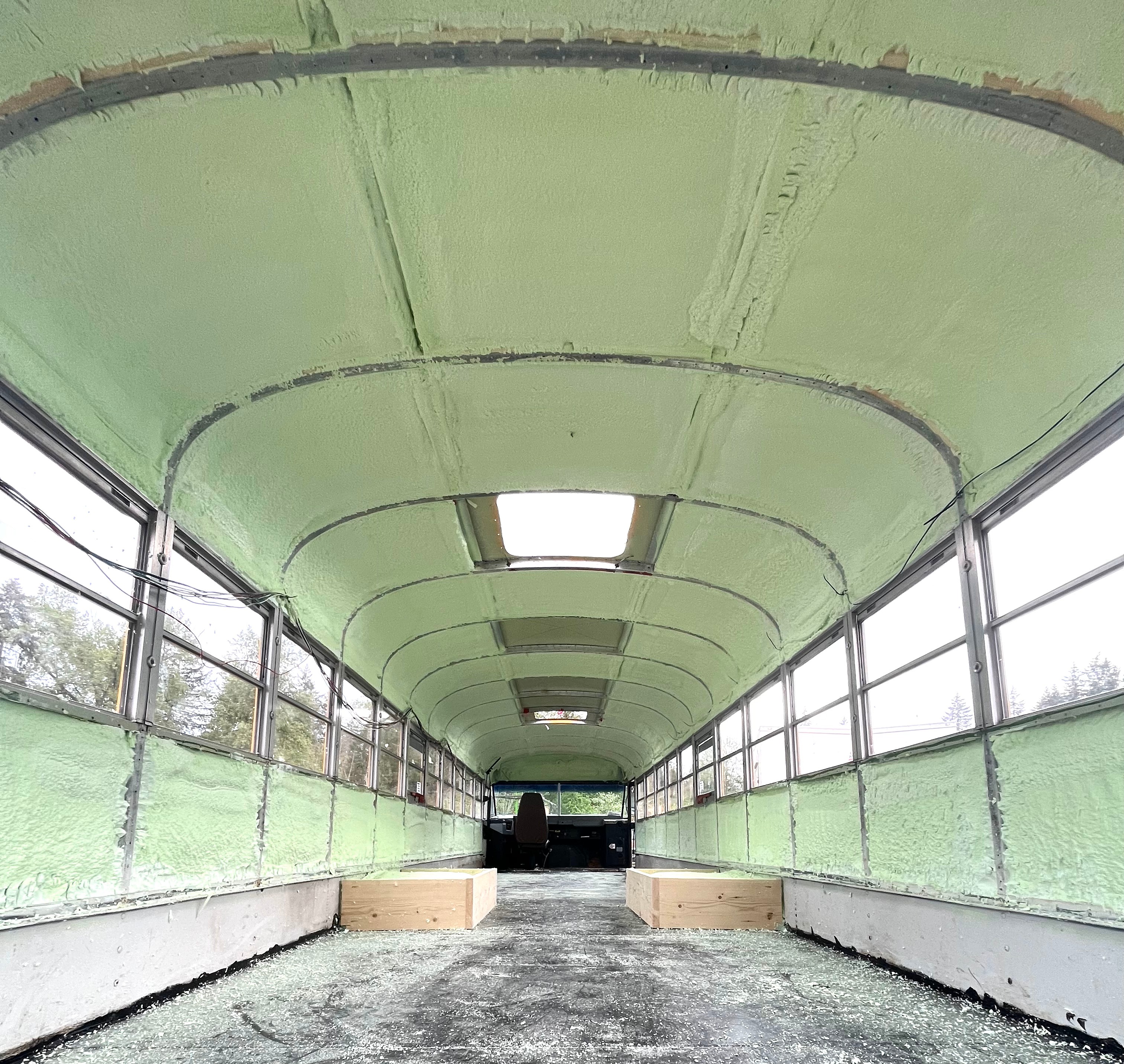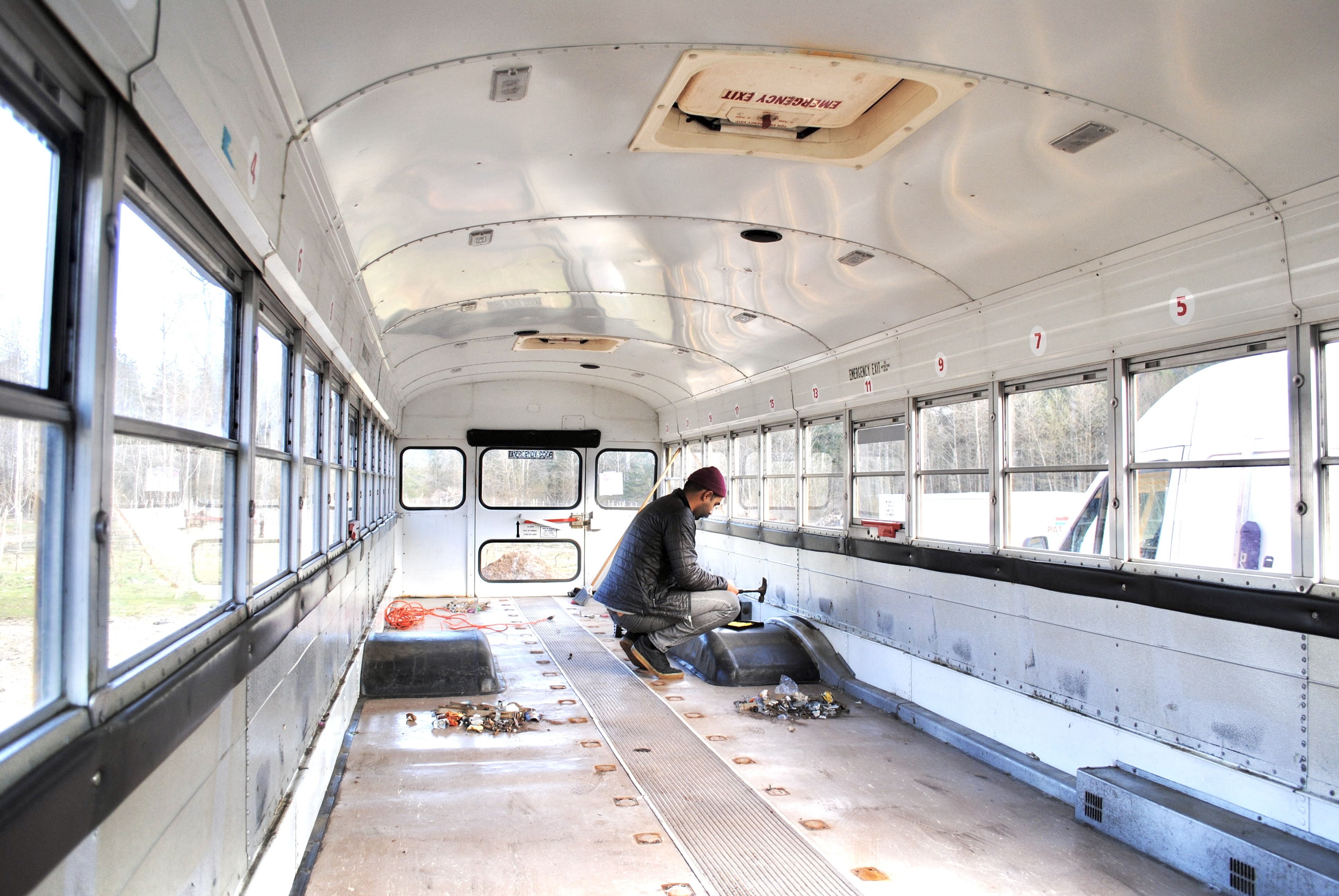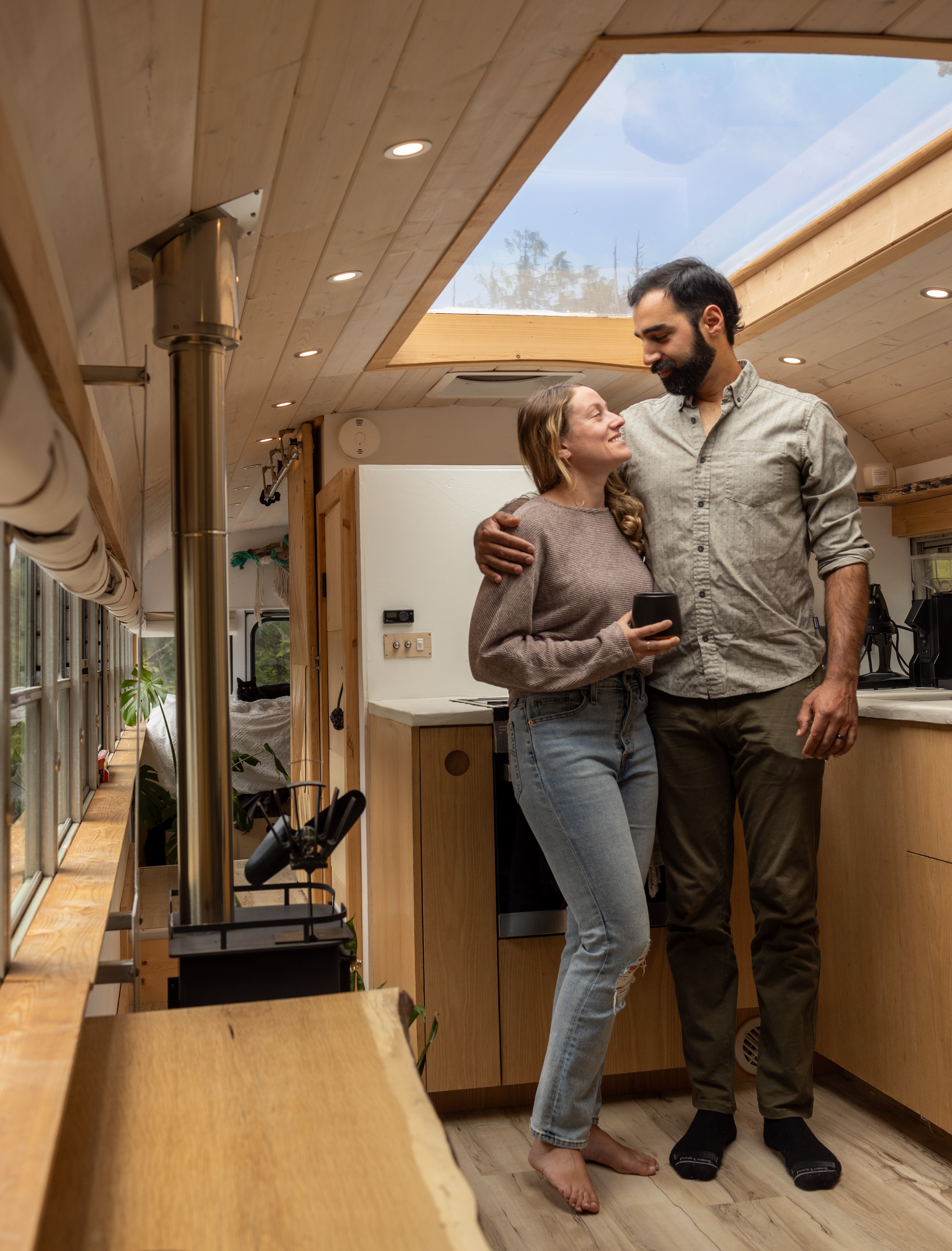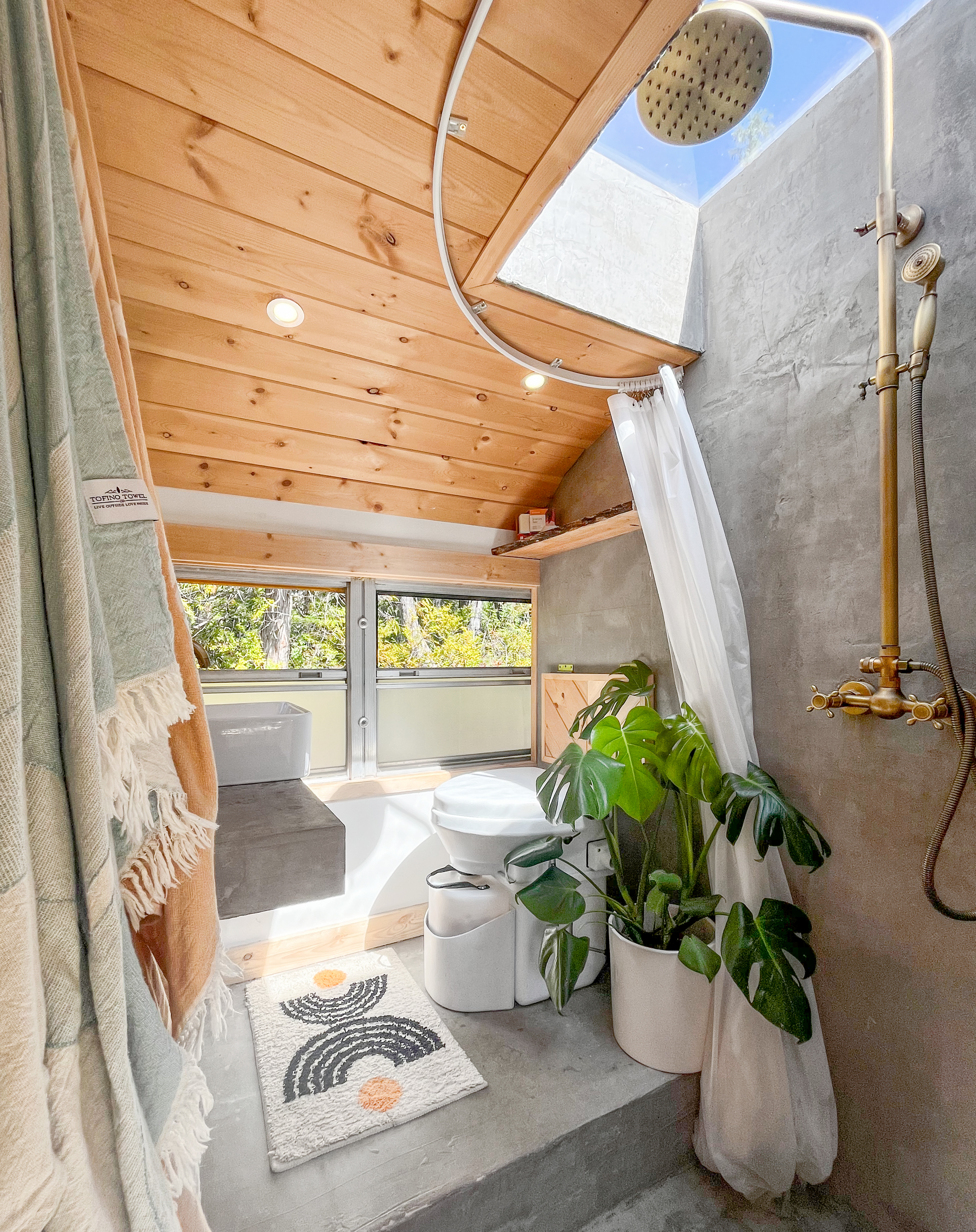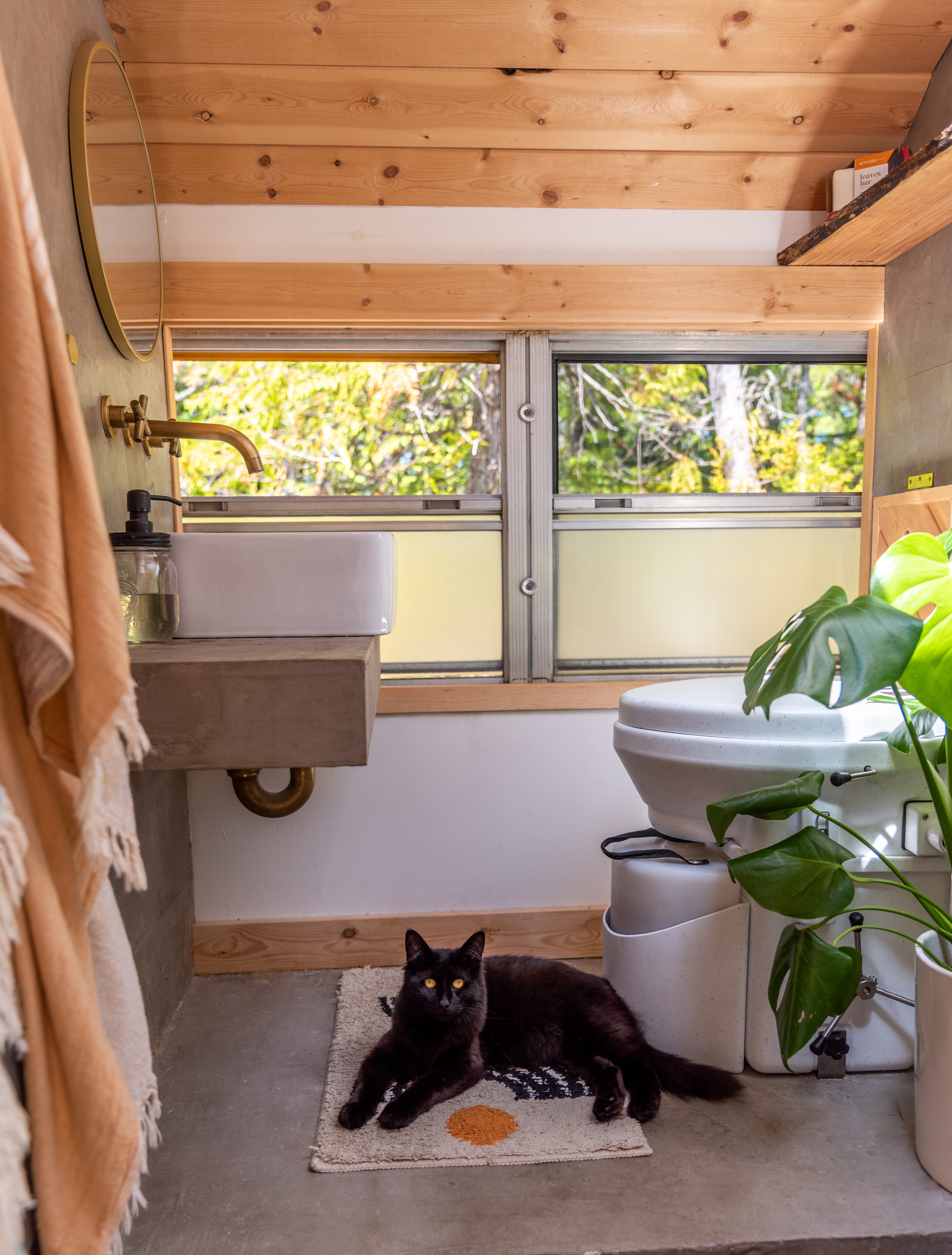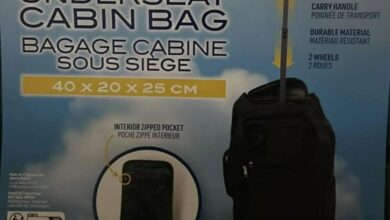My boyfriend and I live in a $112,000 school bus with a shower and a composting toilet
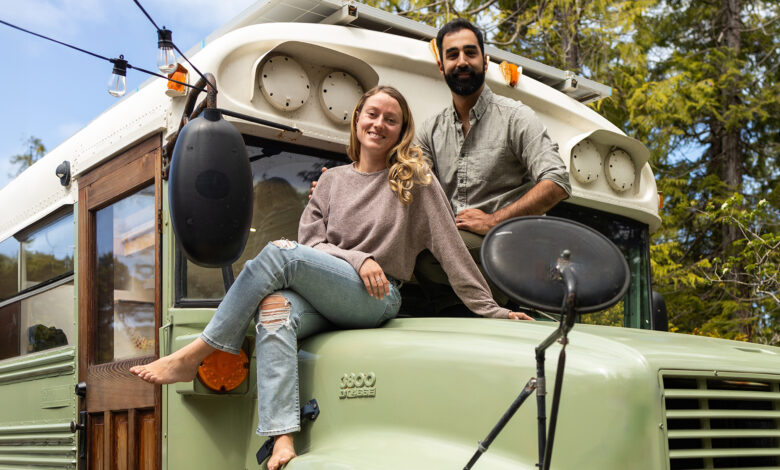
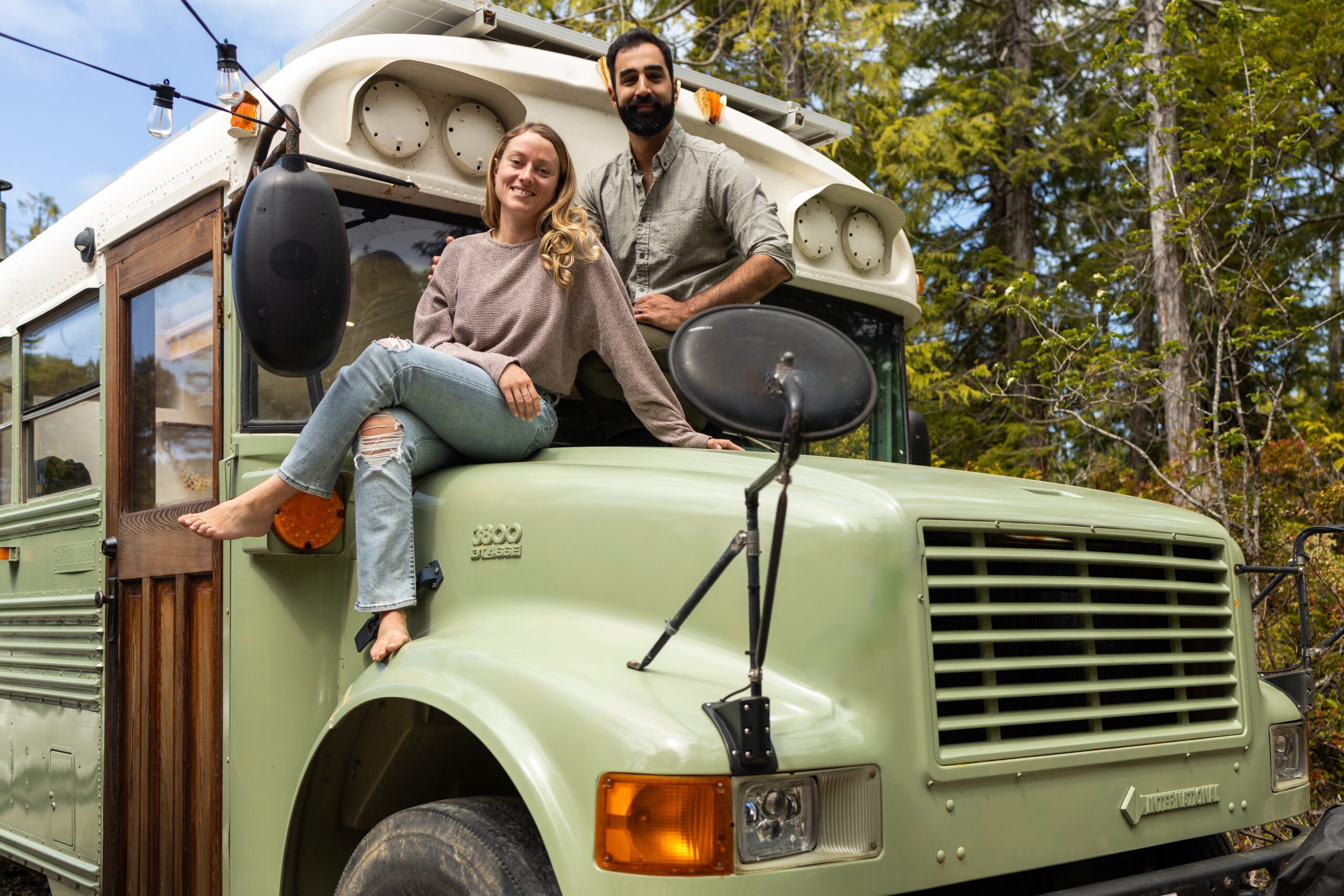
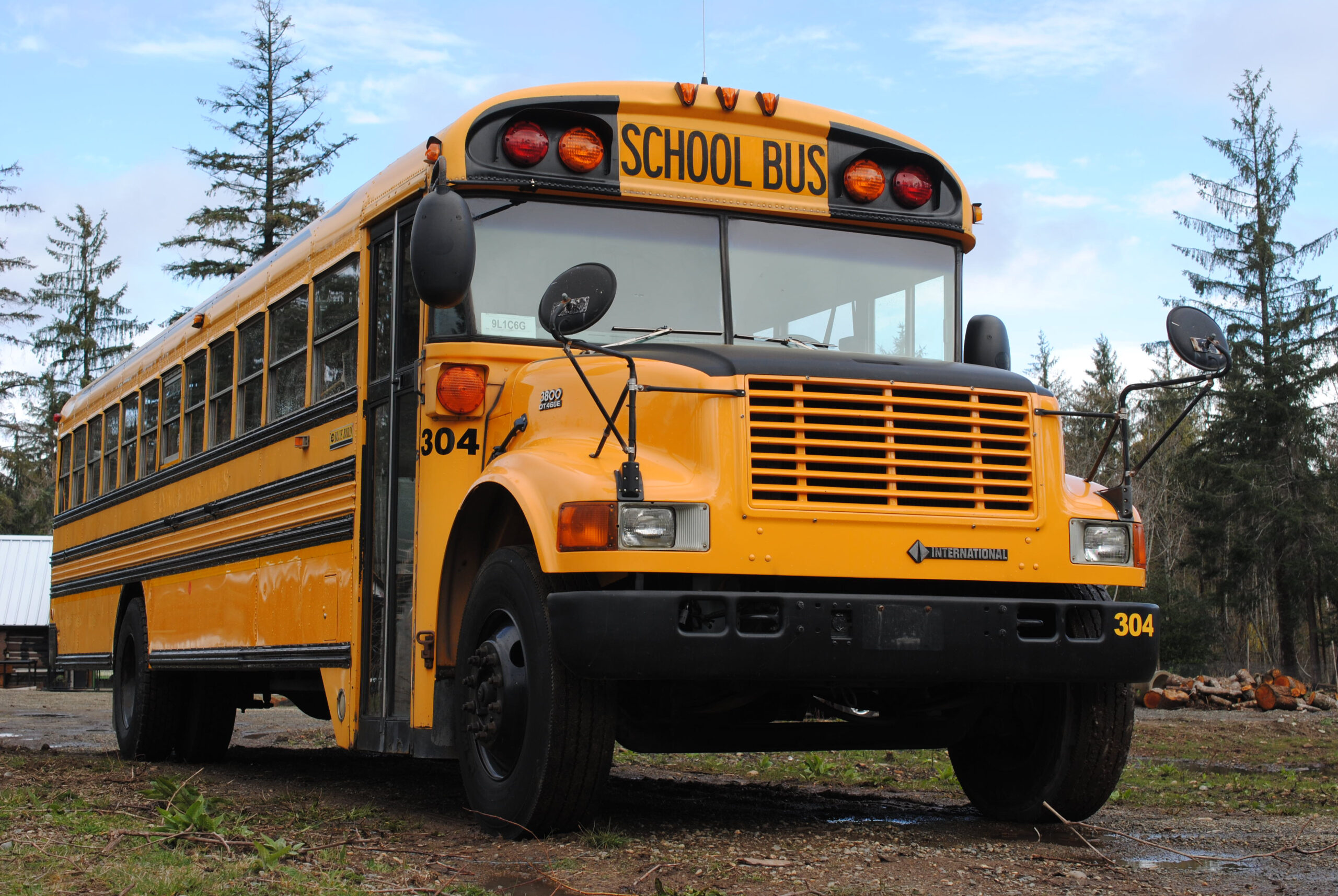
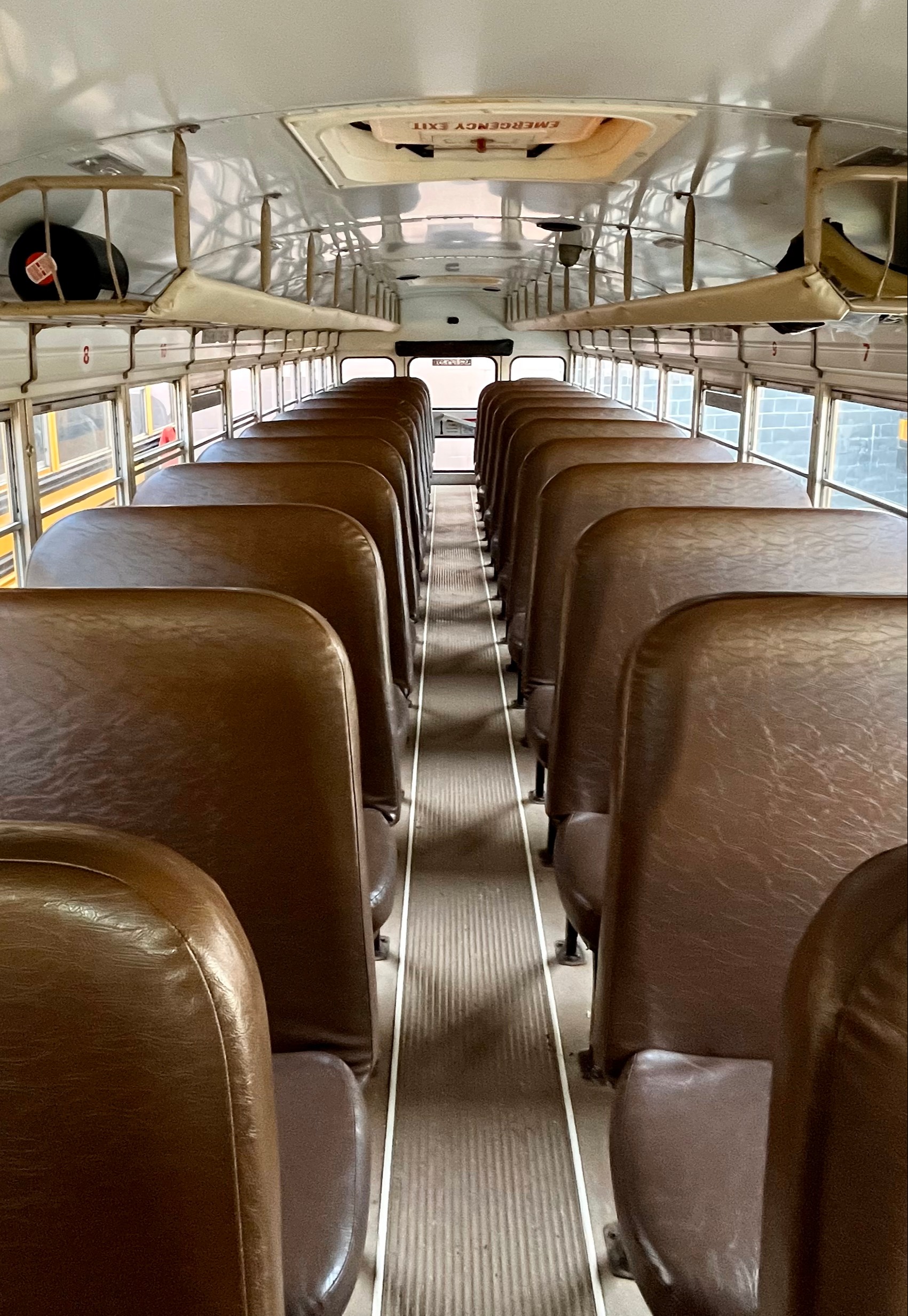
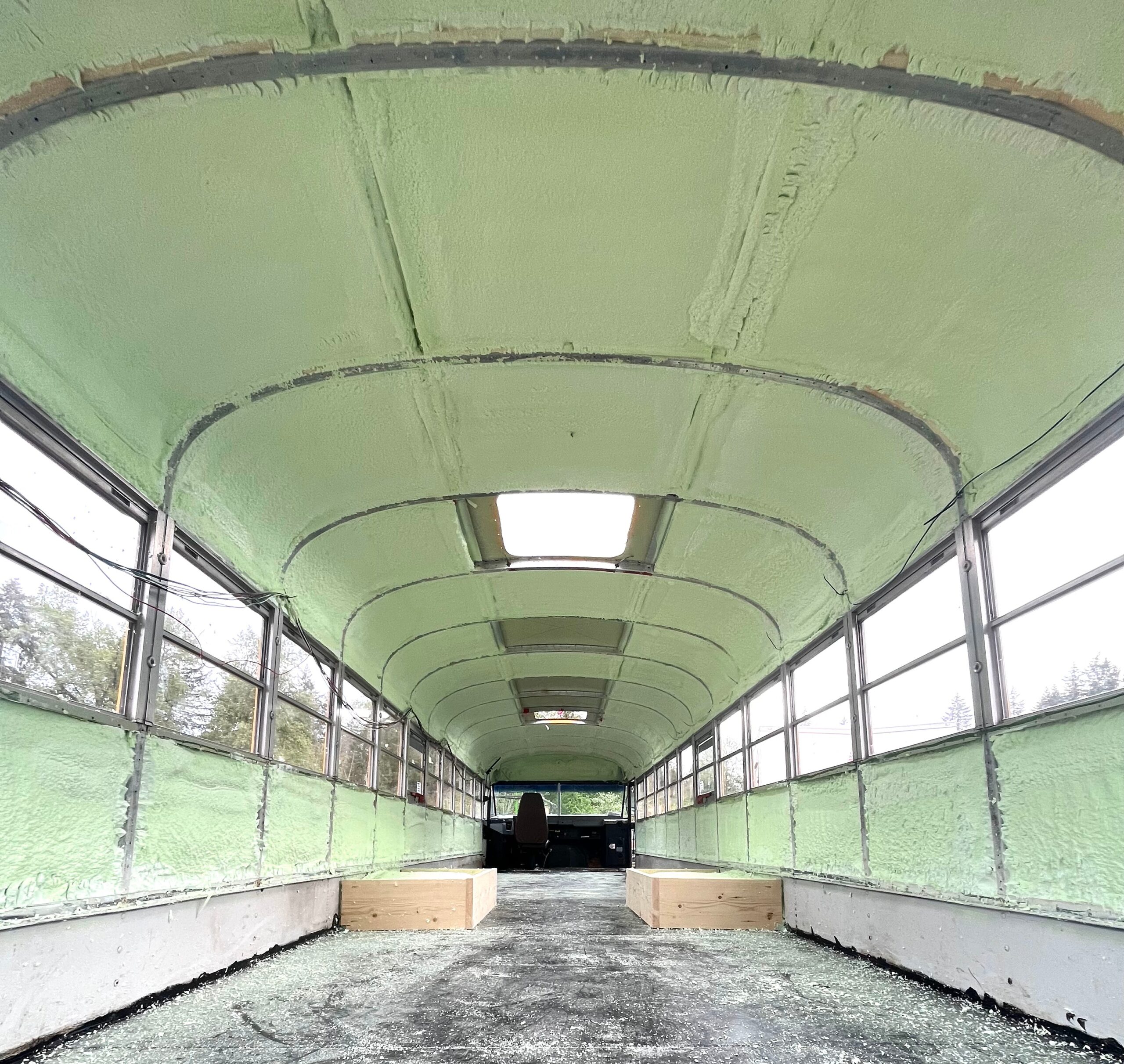
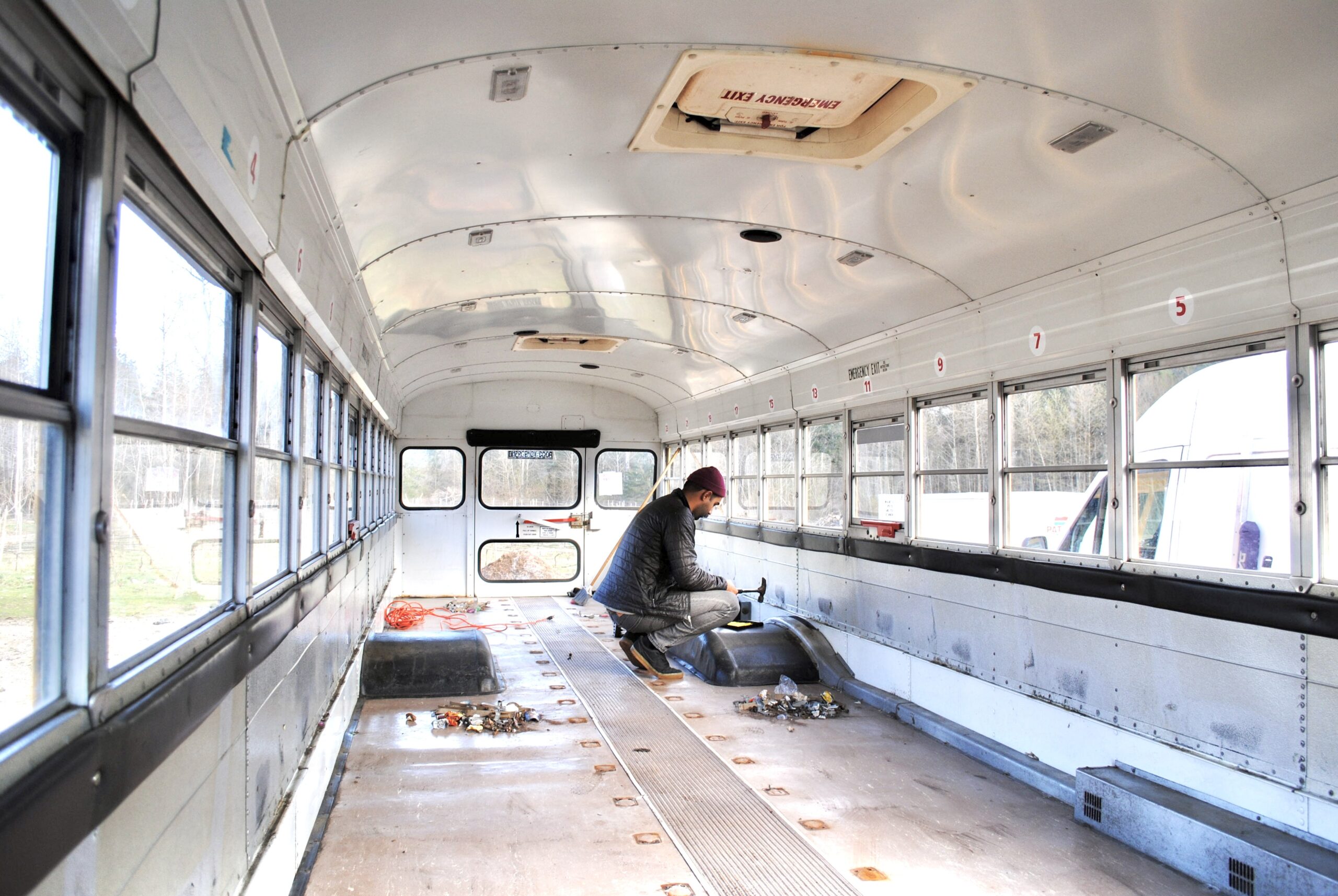
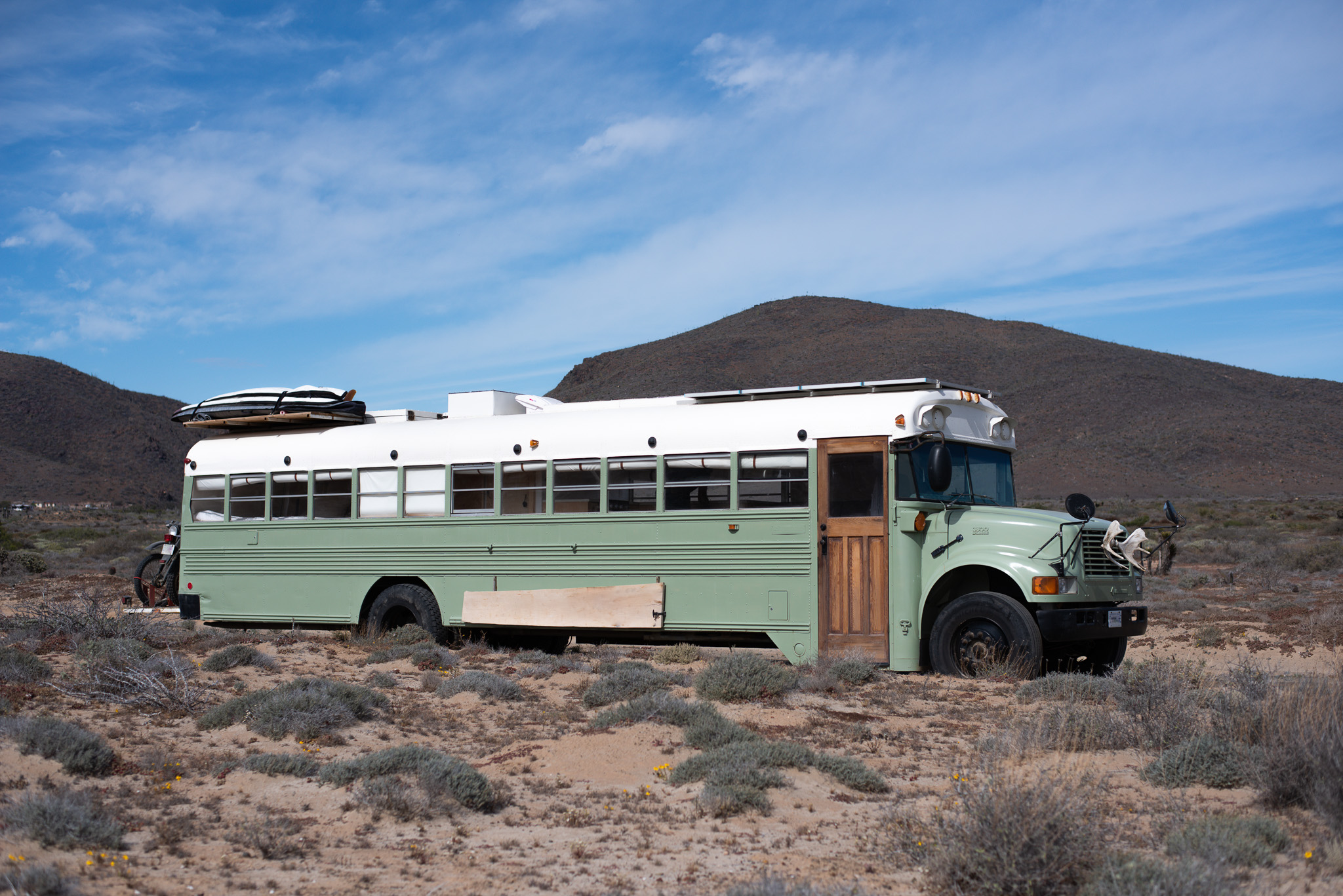
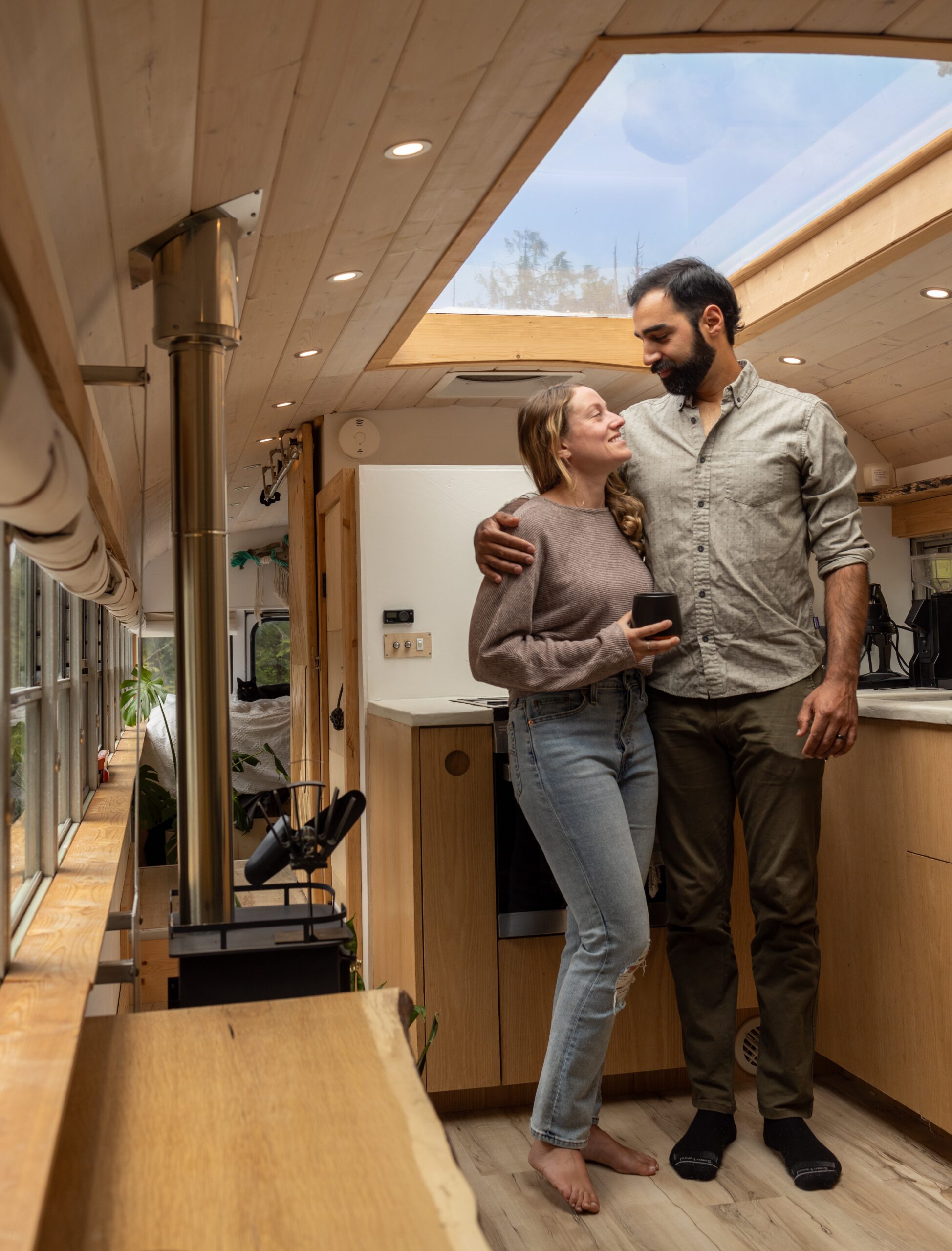
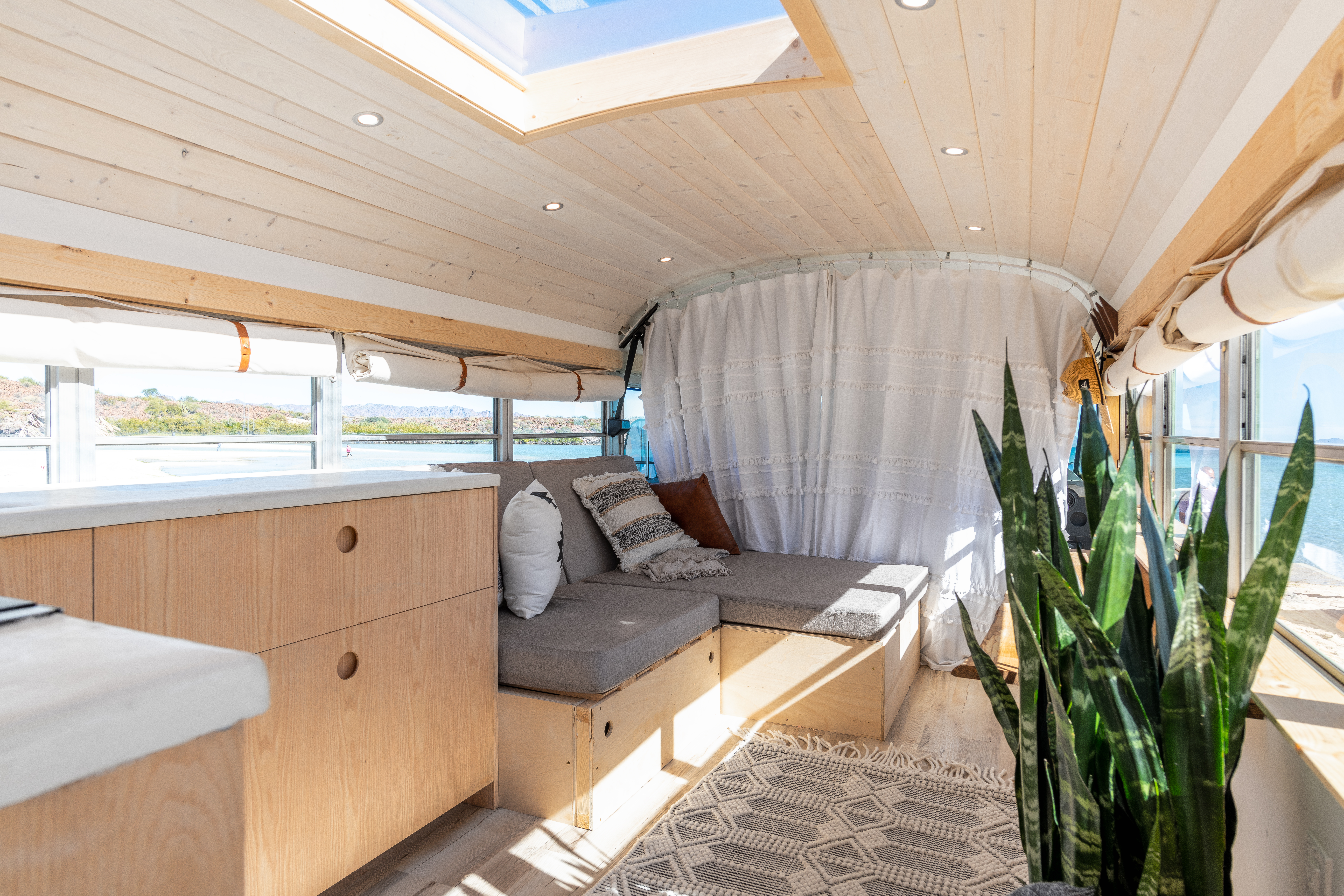
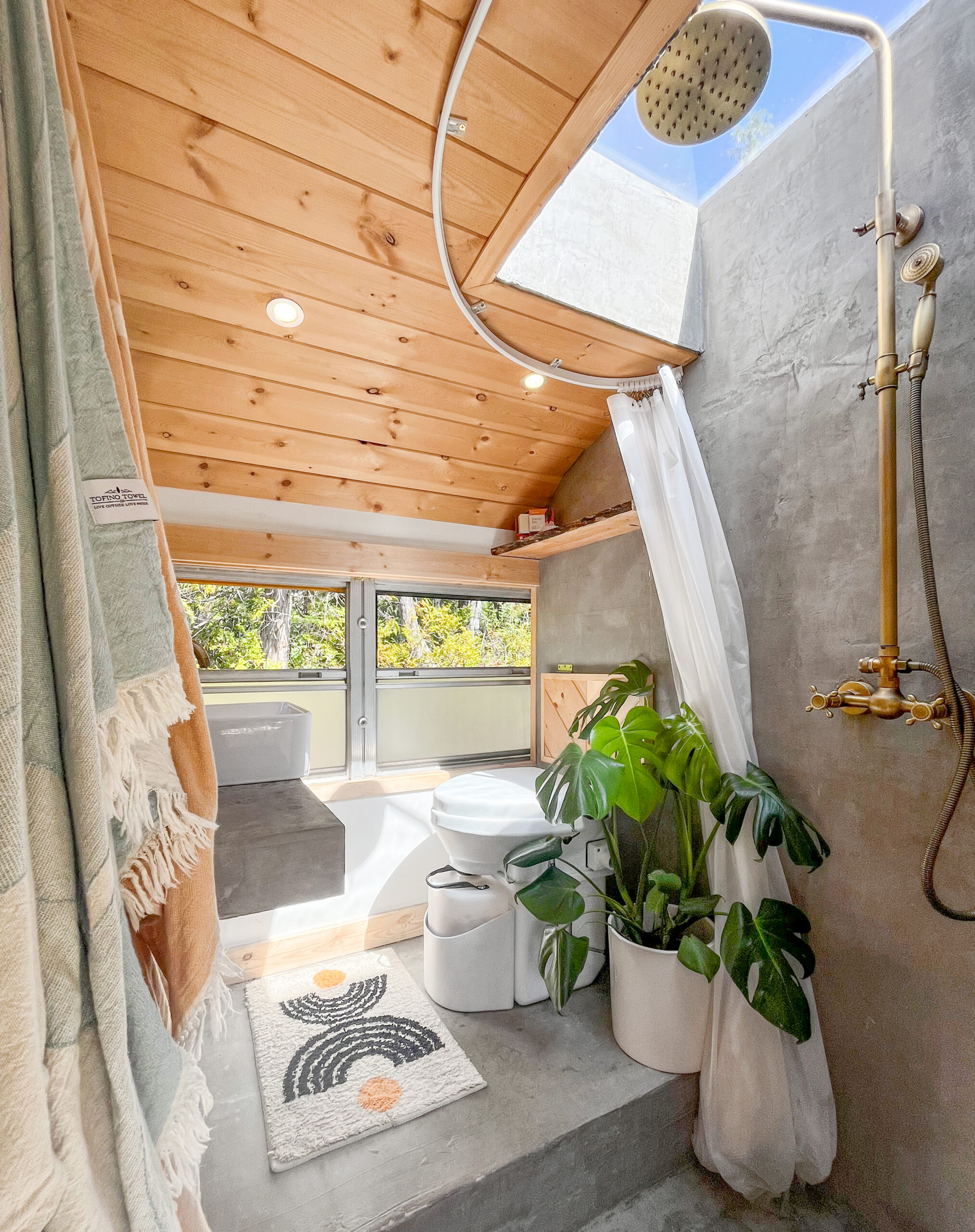
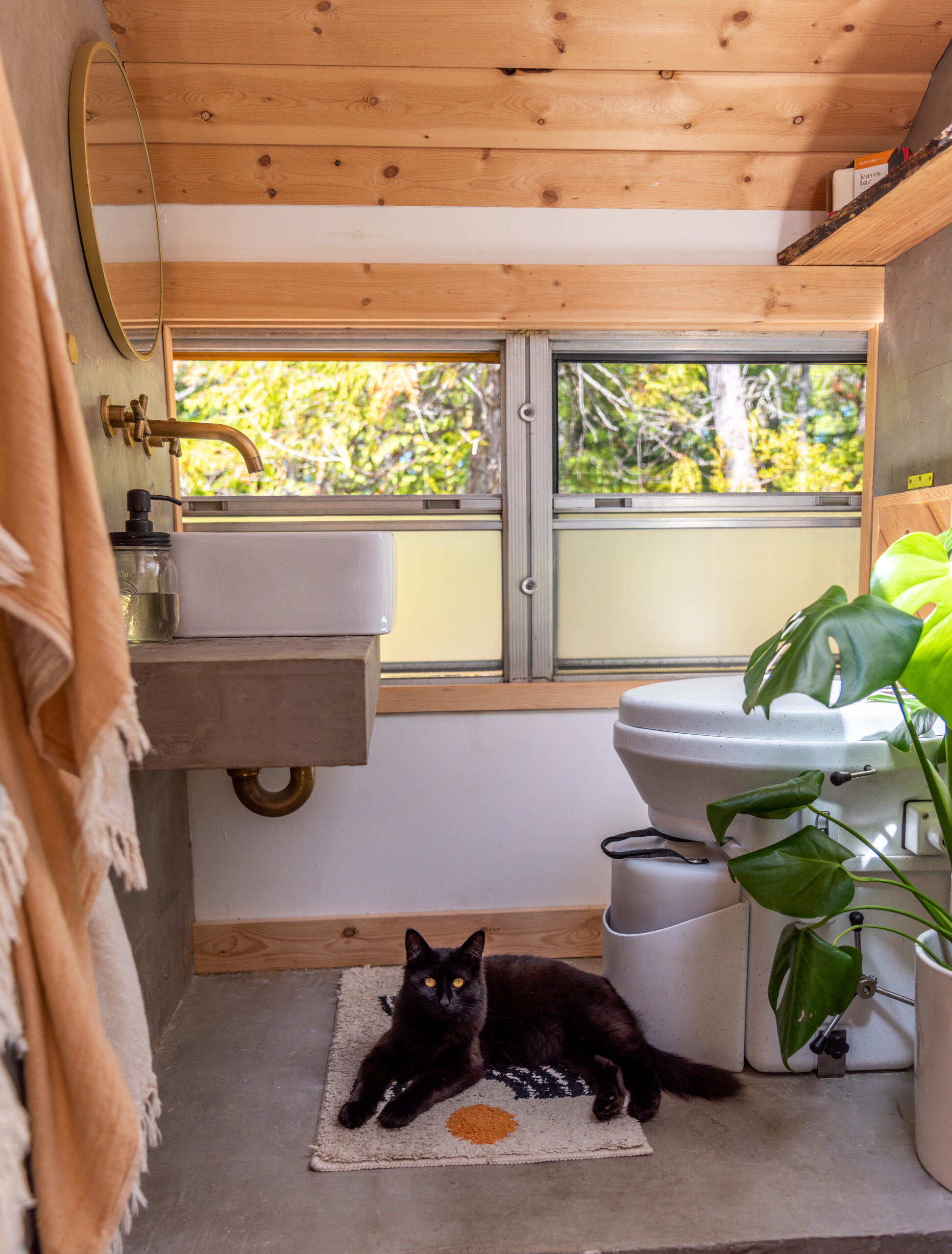
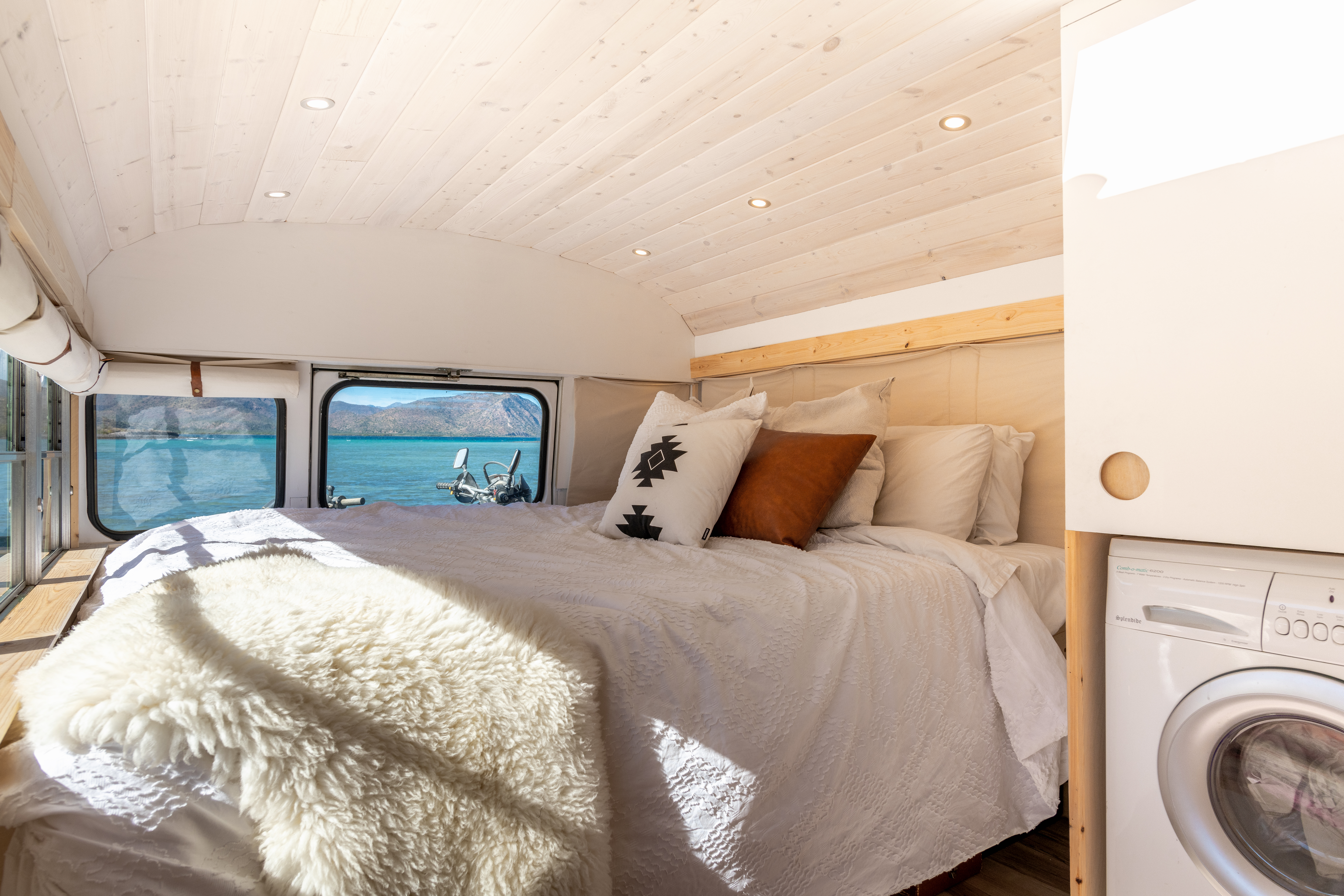
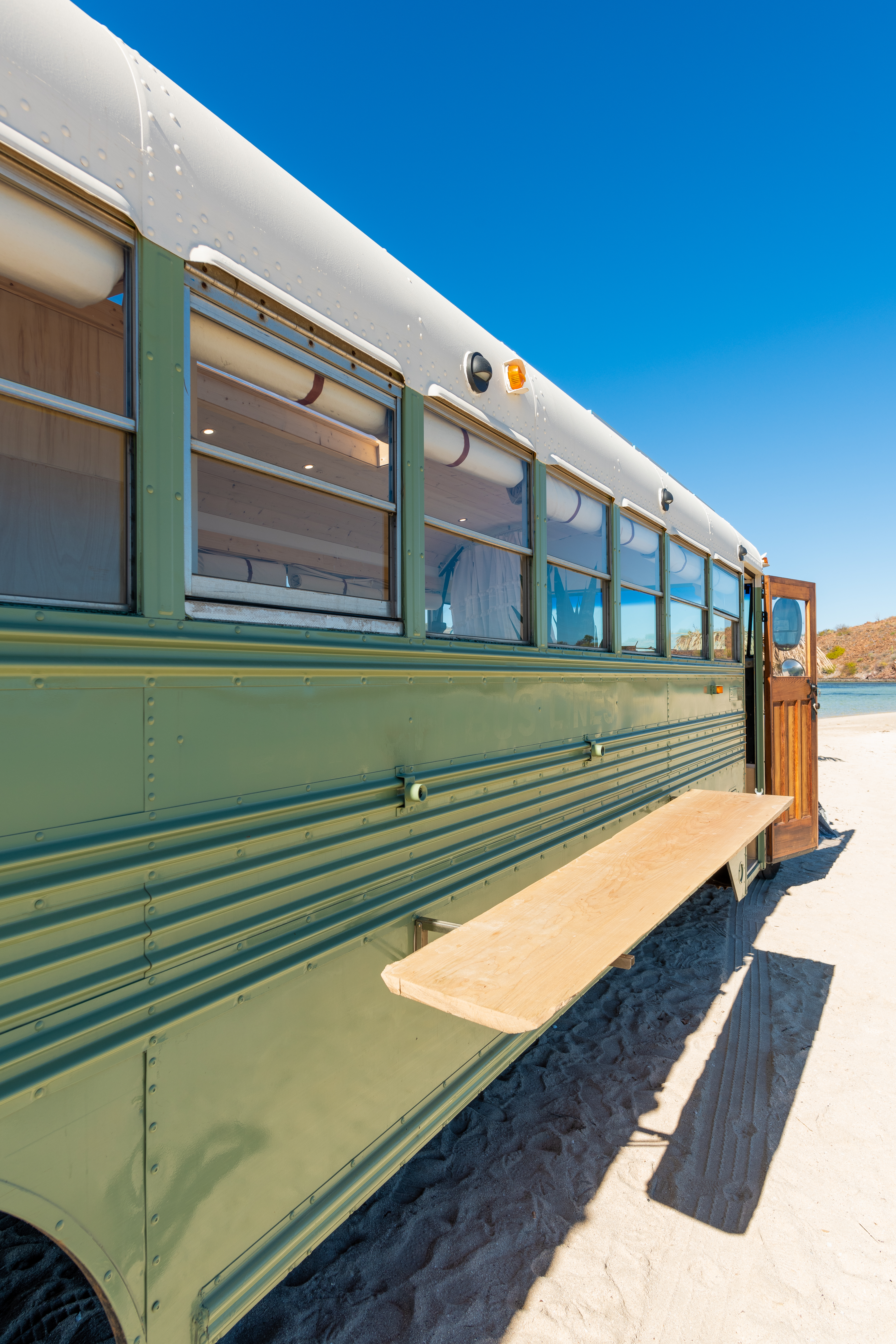
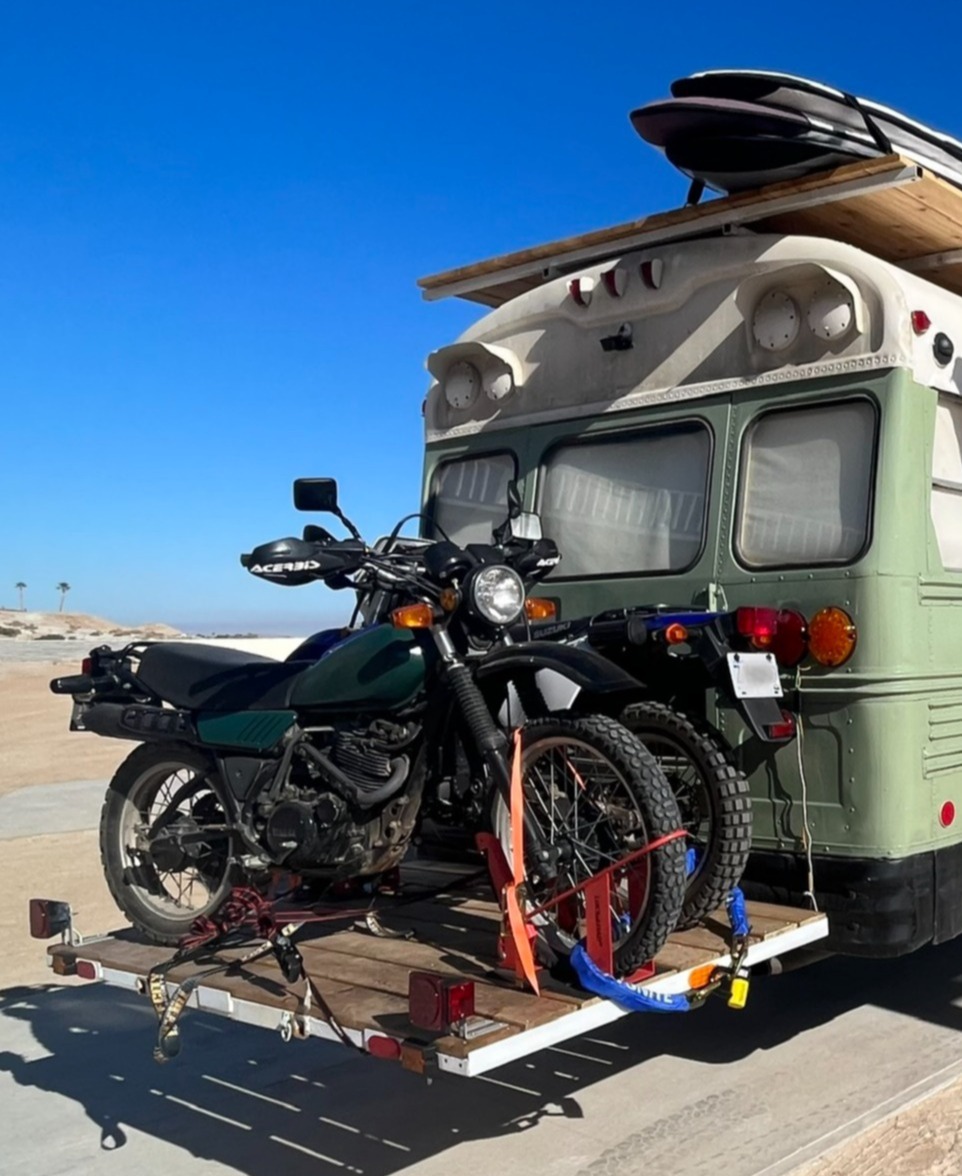
A couple off the grid traveled from Canada to Mexico and back in their converted 40-foot school bus.
Tanya Nestoruk and Arya Touserkani previously lived in a van to save money.
The Canada-based couple, who have been together for four years, have amassed more than 141,000 followers on Instagram of sharing their lives on the road.
Nestoruk, 31, told The US Sun she met her boyfriend, 38, while volunteering at a beach cleanup.
They renovated an old house to live in together, but then traded it in for a van so they could live off-grid.
“We wanted to live as minimally as possible and save,” she said.
“No mortgage, just live on the road and use apps to find free campsites.”
Touserkani, who works as a photographer, previously had a background in construction, but they also used YouTube to learn how to make their vehicle livable.
GO UP
They bought a school bus after deciding they needed more space.
“When we bought him, he had literally already been driven out of school and we got a temporary permit to take him,” she said.
“We didn’t even have a place to park it at first. We called a friend and asked if we could park it on their field.
“And everything fell into place.
“We started with the demo and took all the seats apart, took the interior apart, the old insulation… we just stripped it right off.
Stripping down the school bus was an “exhausting process,” but also fun because they saw it as a blank canvas.
“We made a list of the things we wanted and used photos of other homes for inspiration before choosing a design we liked.
“It was all about maximizing space and finding creative storage solutions.”
They enlisted the help of friends for a “barn party” to prepare the bus for the paint job, changing the color from bright yellow to a “relaxing seafoam green.”
BUDGET PURCHASES
The couple received help from professionals to install the electrical system and plumbing before the vehicle was certified as a camper.
“We have a fridge-freezer that comes out from under the counter,” Nestoruk said.
“Faux concrete in the shower and on the countertops and a used washer-dryer combination.
“Everything we bought, we did through a Facebook marketplace.”
The couple bought the school bus for $72,000 and spent another $40,000 on materials.
They welded a four-foot-high platform to store their motorcycles.
Nestoruk admits that it was not easy living in their van while they were busy renovating the school bus.
“We lived in our van during the winter/spring in Canada and it was pretty intense for a while,” she said.
“We had no showers and just went to the community center or visited friends to try to make it work.
“When we lived in our van, we had a stove and a sink, so it was a mini version of the van in a way.
“We tried to give it all the comforts of home in the style we like, but in a smaller space.
“Then we rented a short-term home because I thought that would be better for our mental health.
“We ended up getting on the bus before it was ready and put the finishing touches on the road.”
BUSY BUS
Nestoruk said sleeping in the school bus is “luxury” compared to sleeping in their own van, because they have a king-size bed.
Other comforts of home include an L-shaped couch, a wood-burning stove and a shower, but they come with more housekeeping duties than living in a house.
“Make sure you have water, you have your waste, and your solar panels are working,” she said.
“There are many different systems, because we are 100% off the grid.
“Just making sure we have all our basic needs met takes more work than just living in a house.
“But then you also have the option to live wherever you want and park at the beach or in the mountains or wherever, which is really nice.”
GETTING INTO GEAR
Nestoruk said parking the bus is an “adventure,” and while the bus rides smoothly, it feels like a “boat.”
The couple uses the free app iOverland to find places to stay for up to three weeks or to park with friends and family.
“It’s hilarious cruising down the highway,” she said.
“It takes a team effort to figure out where to park. One of us goes to Google Maps and looks at a satellite image of the parking lots to find the best route.
“If we get stuck, we have a reversing camera to help us, and because there are so many windows, there are hardly any blind spots.
“We did it ourselves, but it’s just more fun when we do it together.
This life is not just about the open road, but about a more sustainable way of traveling and living.
“When we drove through Mexico the roads were quite narrow so that was a bit annoying.
“But in the United States and Canada it’s generally a lot of fun.
“We get a lot of people who want to share their school bus stories or reminisce about family members or friends who have lived on school buses. That’s nice to hear.”
GOING GREEN
She said that living on a school bus isn’t as bad for the environment as people think, citing some diesel pickup trucks that get worse fuel economy than their bus’s 12-15mpg.
“We also significantly reduce our footprint by saving water, using solar energy, using a composting toilet, and so on,” she said.
“This life is not just about the open road, but about a more sustainable way of traveling and living.”
“We tried to take the time to research the best natural, eco-friendly products that allow us to live as lightly as possible,” she continued.
“I was always that person in high school who looked for the most environmentally friendly deodorants and toothpaste.
“When you travel, there are ways to leave less of a footprint and be more aware of what you can do to give back to the environment, such as by carrying out clean-ups.”
DRIVING LESSONS
Nestoruk advises people considering living in a vehicle to try it out before investing in an expensive conversion.
“See if you like it, and what do I need?” she said.
“Do I need a small toilet or a cooking stove?
“Do I want a refrigerator or just a cool box? Build it to your lifestyle.”
Nestoruk and Touserkani have been traveling across Canada for the past few months.
Once they have saved enough money to open their B&B, they plan to sell their van.
“We’ve been testing a trailer tent for weekend trips and finding a way where we can continue to travel and have that nomadic lifestyle on the weekends, even when we have a house or that next project,” she said.
“But for now we live full-time in the bus.”

